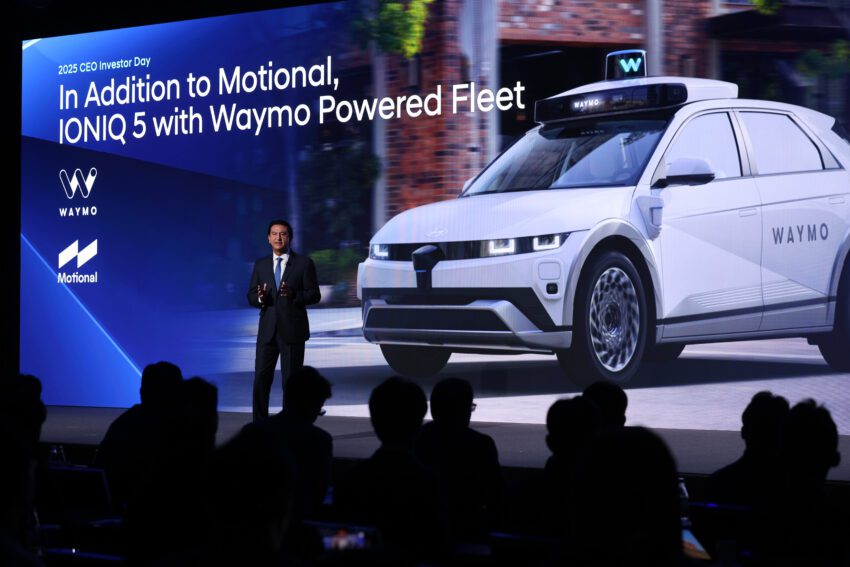
hyundai ceo distances company from ice raid The CEO of Hyundai has publicly distanced the company from a recent Immigration and Customs Enforcement (ICE) raid that took place at a battery factory in Georgia, clarifying that it was not operated by Hyundai but by LG Energy Solutions.
hyundai ceo distances company from ice raid
Context of the ICE Raid
On September 4th, ICE conducted a raid at the LG Energy Solutions battery plant in Georgia, resulting in the detention of 475 workers, the majority of whom were South Korean nationals. This operation has raised significant concerns regarding immigration policies and their implications for foreign investment in the United States, particularly in the automotive sector.
Hyundai’s Response
José Muñoz, the president and CEO of Hyundai Motor Company, addressed the situation during a briefing with reporters following the company’s CEO Investor Day event in New York City on September 18th. He expressed his disbelief regarding the raid, stating, “I could not believe what I saw because I would have known, probably before the news.” Muñoz emphasized that the facility targeted by ICE was not owned by Hyundai but rather by LG Energy Solutions, which operates the battery plant.
Clarification of Ownership
Muñoz clarified that the workers detained were primarily employed by suppliers to LG Energy Solutions, not directly by Hyundai. This distinction is crucial as it underscores the complex relationships that exist within the supply chain of the automotive industry, particularly in the context of electric vehicle (EV) production. The CEO noted, “So I said, something is weird here. How can something happen [and] nobody told me?”
Media Misrepresentation
Adding to his concerns, Muñoz criticized the media coverage surrounding the raid, stating that many images depicted Hyundai’s Metaplant facility instead of the actual site of the raid. “All the pictures that were shown everywhere, they are pictures of a facility which is different from where the raid happened,” he said. This misrepresentation could potentially harm Hyundai’s reputation and complicate its relationships with stakeholders, including investors and local communities.
Implications for Foreign Investment
The ICE raid has broader implications for foreign companies operating in the United States. Traditionally, foreign automakers bring skilled workers from their home countries to assist in the construction of new facilities. This practice is particularly common in the automotive sector, where specialized knowledge is often required to set up complex manufacturing operations. However, the raid has raised fears that such practices may become less viable due to the potential for immigration enforcement actions.
Concerns from Industry Experts
Labor experts have warned that the ICE raid could deter foreign investment in the U.S., particularly in industries like automotive manufacturing and EV production. The fear is that companies may reconsider their plans to bring foreign workers to assist in the establishment of new facilities, which could slow the growth of the EV market in the U.S. and hinder technological advancements.
Political Reactions
The raid has also drawn political attention. In the wake of the incident, President Donald Trump announced measures aimed at placating South Korea, including a temporary allowance for foreign companies to bring in “people of expertise” to train American workers. However, critics argue that the damage may already have been done. The perception that foreign workers could be rounded up in immigration crackdowns may lead companies to think twice before sending their skilled employees to the U.S.
Hyundai’s Future Plans
In light of the recent events, Muñoz confirmed that the construction of the battery plant would be delayed by two to three months due to labor shortages exacerbated by the raid. This delay could have cascading effects on Hyundai’s production timelines and its ability to meet growing demand for electric vehicles.
Advocacy for Skilled Worker Visas
During his remarks, Muñoz advocated for the creation of a new type of visa specifically designed for highly skilled workers who are essential for the development of large-scale projects like the battery plant. He stated, “I think the US government has acknowledged that there needs to be a better solution to address this type of situation.” This call for policy reform highlights the need for a more nuanced approach to immigration that recognizes the importance of skilled labor in the rapidly evolving automotive industry.
Collaboration Between Governments
Muñoz also emphasized that both the South Korean and U.S. governments are actively working to ensure that situations like the ICE raid do not recur. This collaboration is crucial for maintaining a favorable business environment for foreign companies and ensuring that skilled labor can be utilized effectively in the U.S. economy.
Conclusion
The ICE raid at the LG Energy Solutions battery plant has raised significant concerns about immigration policies and their impact on foreign investment in the U.S. Hyundai’s CEO José Muñoz has taken a firm stance to clarify the company’s position, distancing it from the raid and advocating for policy changes that would facilitate the entry of skilled workers. As the automotive industry shifts towards electric vehicles, the ability to attract and retain specialized talent will be critical for success. The ongoing dialogue between governments and industry leaders will be essential in shaping a more favorable landscape for foreign investment and skilled labor in the United States.
Source: Original report
Was this helpful?
Last Modified: September 19, 2025 at 1:37 am
2 views















